Stephen Hawking
Written by Quantum Study Club on 18.19Arip Nurahman
Department Pendidikan Fisika, FPMIPA, Universitas Pendidikan Indonesia
&
Follower Open Course Ware at MIT-Harvard University
Stephen William Hawking, CH, CBE, FRS, FRSA (born 8 January 1942) is a British theoretical physicist. He is known for his contributions to the fields of cosmology and quantum gravity, especially in the context of black holes. He has also achieved success with works of popular science in which he discusses his own theories and cosmology in general; these include the runaway best seller A Brief History of Time, which stayed on the British Sunday Times bestsellers list for a record-breaking 237 weeks.[1]
Hawking's key scientific works to date have included providing, with Roger Penrose, theorems regarding singularities in the framework of general relativity, and the theoretical prediction that black holes should emit radiation, which is today known as Hawking radiation (or sometimes as Bekenstein-Hawking radiation).[2] He is a world-renowned theoretical physicist whose scientific career spans over 40 years. His books and public appearances have made him an academic celebrity. He is an Honorary Fellow of the Royal Society of Arts,[3] and a lifetime member of the Pontifical Academy of Science.[4] On August 12, 2009, he was awarded the Presidential Medal of Freedom, the highest civilian award in the United States.[5]
Hawking was the Lucasian Professor of Mathematics at the University of Cambridge for thirty years, taking up the post in 1979 and retiring on October 1, 2009.[6][7] He is also a Fellow of Gonville and Caius College, Cambridge and a Distinguished Research Chair at the Perimeter Institute for Theoretical Physics in Waterloo, Ontario.[8]
Hawking has a neuro muscular dystrophy that is related to amyotrophic lateral sclerosis (ALS), a condition that has progressed over the years and has left him almost completely paralyzed.
| Stephen William Hawking | |
|---|---|
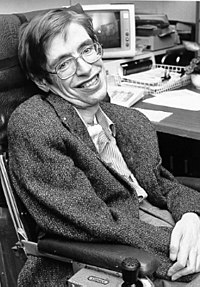 Stephen Hawking at NASA | |
| Born | Stephen William Hawking 8 January 1942 Oxford, England |
| Residence | England |
| Nationality | British |
| Fields | Applied mathematician Theoretical physicist |
| Institutions | University of Cambridge Perimeter Institute for Theoretical Physics |
| Alma mater | University of Oxford University of Cambridge |
| Doctoral advisor | Dennis Sciama |
| Other academic advisors | Robert Berman |
| Doctoral students | Bruce Allen Raphael Bousso Fay Dowker Malcolm Perry Bernard Carr Gary Gibbons Harvey Reall Don Page Tim Prestidge Raymond Laflamme Julian Luttrell |
| Known for | Black holes Theoretical cosmology Quantum gravity |
| Influences | Dikran Tahta |
| Notable awards | Prince of Asturias Award (1989) Copley Medal (2006) Presidential Medal of Freedom (2009) |
| Religious stance | Agnostic |
Signature | |
(Wikipedia)
Professor Hawking has given many lectures to the general public. Many of these past lectures have been released in his 1993 book, 'Black Holes and Baby Universes, and other essays'. Below are some of the more recent public lectures. Included with these lectures is a Glossary of some of the terms used.
Godel and the End of Physics (written in 2002)
"In this talk, I want to ask how far can we go in our search for understanding and knowledge. Will we ever find a complete form of the laws of nature? By a complete form, I mean a set of rules that in principle at least enable us to predict the future to an arbitrary accuracy, knowing the state of the universe at one time. A qualitative understanding of the laws has been the aim of philosophers and scientists, from Aristotle onwards."
My Life in Physics (written in 2006)
"I did my first degree in Oxford. In my final examination, I was asked about my future plans. I replied, if you give me a first class degree, I will go to Cambridge. If I only get a second, I will stay in Oxford. They gave me a first. I arrived in Cambridge as a graduate student in October 1962."
The Origin of the Universe (written in 2005)
"Why are we here? Where did we come from? The answer generally given was that humans were of comparatively recent origin, because it must have been obvious, even at early times, that the human race was improving in knowledge and technology. So it can't have been around that long, or it would have progressed even more."
The Beginning of Time (written in 1996)
"In this lecture, I would like to discuss whether time itself has a beginning, and whether it will have an end. All the evidence seems to indicate, that the universe has not existed forever, but that it had a beginning, about 15 billion years ago. This is probably the most remarkable discovery of modern cosmology. Yet it is now taken for granted. We are not yet certain whether the universe will have an end."
The Nature of Space and Time
Stephen Hawking and Roger Penrose gave a series of 3 lectures each at the Isaac Newton Institute in Cambridge. The full series is available in a book of the same name. Here we have compiled Stephen's contribution to the series, as well as the final debate. This is available for download as pdf format or 4 postscript files or (penrose1.ps penrose2.ps penrose3.ps penrose4.ps).
Space and Time Warps (written in 1999)
"In science fiction, space and time warps are a commonplace. They are used for rapid journeys around the galaxy, or for travel through time. But today's science fiction, is often tomorrow's science fact. So what are the chances for space and time warps."
Does God Play Dice (written in 1999)
"This lecture is about whether we can predict the future, or whether it is arbitrary and random. In ancient times, the world must have seemed pretty arbitrary. Disasters such as floods or diseases must have seemed to happen without warning or apparen t reason. Primitive people attributed such natural phenomena, to a pantheon of gods and goddesses, who behaved in a capricious and whimsical way. There was no way to predict what they would do, and the only hope was to win favour by gifts or actions."
Life in the Universe (written in 1996)
"In this talk, I would like to speculate a little, on the development of life in the universe, and in particular, the development of intelligent life. I shall take this to include the human race, even though much of its behaviour through out history, has been pretty stupid, and not calculated to aid the survival of the species."
Lectures (Microsoft Reader)
Lectures (Palm Reader)
KOLOKIUM Prof. Hawking
Arti dari KOLOKIUM
Dari Bahasa Yunani :
• Co : berarti ikut serta
• Loque : berbicara/tukar pendapat/dialog
Bahasa Indonesia :
Ikut serta berbicara, mengemukakan pendapat dalam bidang teknik perminyakan dalam bentuk tulisan.
Maksud dari KOLOKIUM
- Pendalaman materi-materi yang diperoleh di Jururan Teknik Perminyakan secara terintegrasi dan komprehensif.
- Melatih mahasiswa agar terbiasa untuk mengeluarkan pendapat baik secara lisan maupun tulisan.
Tujuan KOLOKIUM
- Agar mahasiswa dapat menganalisa permasalahan secara sistematis dan integratif, serta menuangkannya dalam bentuk tulisan ilmiah dengan sumber dari berbagai literatur, buletin, journal dan tulisan ilmiah lainnya.
- Melatih mahasiswa agar terbiasa ikut berbicara dalam bidang IPTEK khususnya dalam bidang FISIKA dan Pendidikan.
To view the postscript files (.ps) you will need Ghostview. If you have any problems with Ghostview, please refer to the Ghostview website.
Inflation: An Open and Shut Case (April '98)
This talk is based on joint work with Professor Hawking and Professor Turok, at Cambridge. Professor Turok was a proponent of open inflation. This is the idea that the universe is infinitely large, and of low density, despite having been through a period of exponential expansion, in the very early stages. Professor Hawking explains his owns views on this subject and on recent developments in the area.
Gravitational Entropy (June '98)
In this talk Professor Hawking explains some of the past events that have developed an understanding of gravitational entropy. He goes on to explain the present state of the field.
Quantum Cosmology, M-theory and the Anthropic Principle (January '99).
This talk is based on Professor Hawking carried out work with Neil Turok and Harvey Reall. He describes what he sees as the framework for quantum cosmology, on the basis of M theory. He adopts the no boundary proposal, and argues that the Anthropic Principle is essential, if one is to pick out a solution to represent our universe, from the whole zoo of solutions allowed by M theory.
Rotation, Nut Charge and Anti de Sitter Space (February '99).
Professor Hawking carried out the work in this lecture in collaboration with Chris Hunter and Marika Taylor Robinson at Cambridge, and Don Page at Alberta. He describes what he sees as the problems with previous interpretations of this black hole equilibria and goes on to offer what he sees as a more useful interpretation.
Stability of AdS and phase transitions August '99
Black holes are often thought of as completely dead classically. That is they absorb, but do not give out, radiation and energy. In this lecture, first given at the Strings '99 conference, in Potsdam, Germany, Professor Hawking explains that this is not necessarily the case.
The Future of Quantum Cosmology September '99
In this lecture, an updated version of 'Quantum Cosmology, M-theory and the anthropic principle', Professor Hawking again describes what he sees as the framework for quantum cosmology. This lecture was first given at the NATO ASI conference, in Cambridge.
Sumber:
1. Wikipedia
2. http://www.hawking.org.uk/
Ucapan Terima Kasih:
Kepada orang tua terkasih, Guru dan Dosen yang senantiasa memberikan ilmu pengetahuannya, teman dan sahabat tercinta, semoga semuanya senantiasa berada dalam Kesejahteraan dan Kesehatan amin!.
Semoga Bermanfaat, Semangat dan Terima Kasih.
Arip Nurahman
Guru dan Dosen Profesioanl

 | Posted in »
| Posted in »
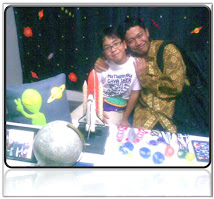




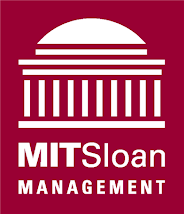



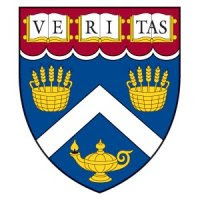
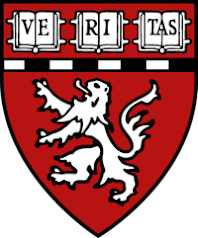


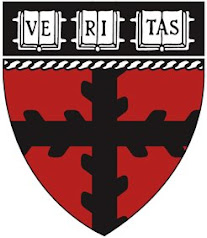
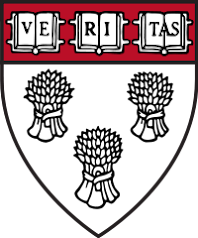

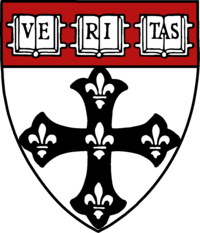

0 comments: Responses to “ Stephen Hawking ”